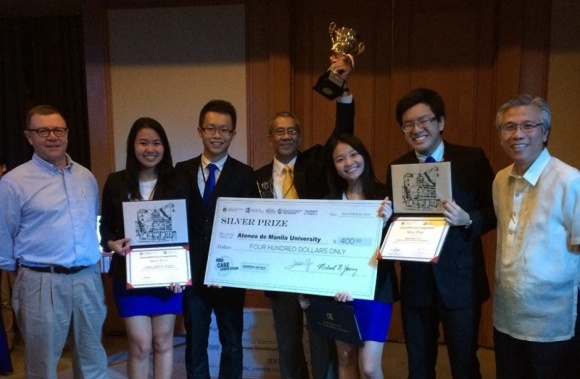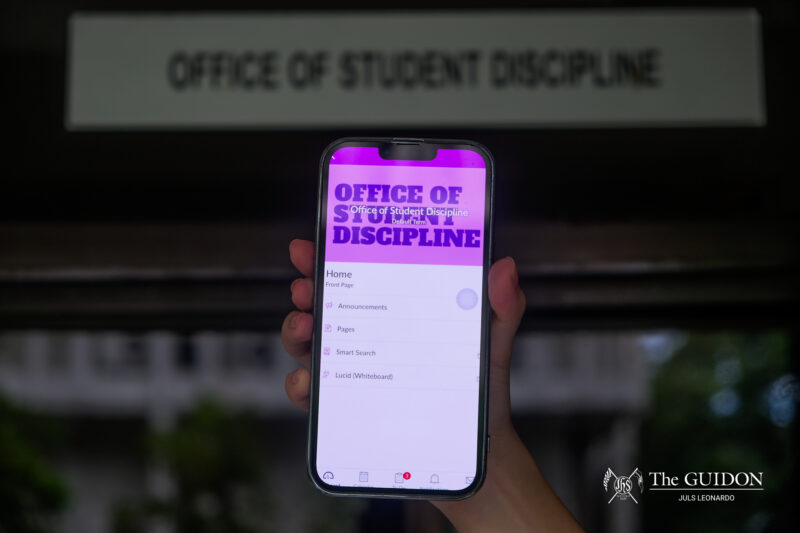A TEAM of Ateneans won the silver prize in this year’s International Institute for Business Development (IIBD) Case Competition held at the Ateneo Graduate School of Business, Makati City on November 21.
The group was composed of management engineering seniors Angela Andaya and Ryan Yu, applied mathematics and management engineering senior James Kang, and management-honors senior Germaine Kaw.
Since 2011, the Ateneo has been part of the top three teams in the competition.
The IIBD Case Competition is an annual international event that challenges the participants to formulate recommendations that can solve real world business problems.
The Ateneo team competed against five other universities from around the globe, namely Assumption University, Bowling Green State University, Hong Kong Baptist University, Petra Christian University and The Hong Kong Polytechnic University.
According to Andaya, what sets this competition apart from the previous ones is the theme, “Communicating CSR [Corporate Social Responsibility] to Stakeholders: Reputational Gains and Risks.”
“Usually when it’s a business case, we follow a specific format… But this year, what made it more challenging is that the theme was about communicating CSR; so you don’t only have to make business decisions, but you have to make communication strategies also,” she said.
Andaya added that for preparation, they had to attend crash courses during the summer to equip them for the competition. The team was coached by Leadership and Strategy Department Lecturers Jay Cruz and Hector Guballa, Chemistry Department Lecturer Assunta Cuyegkeng, PhD, and Marketing and Law Department Lecturer Matec Villanueva.
Case
During the final round of the competition, the participants were given six hours to prepare a 20-minute presentation to discuss their potential solution for the given case.
This year, the finalists were tasked to deal with a case based on the advertisement “The Scarecrow” by Mexican fast food chain Chipotle.
According to Andaya, Chipotle released the advertisement with the intent of showing the company’s support for responsible farming.
However, the advertisement was misunderstood to be a promotion of vegetarianism which opposes the meat products served by the food company.
“Our task was to find out the best way to brand Chipotle. [There is a] communications problem because they are saying one thing, but they are doing another,” said Andaya.
The team proposed a 3D strategy–disclosure, dialogue and development–as a solution to the case.
“The strategy entails Chipotle to disclose their current processes, engage in dialogue with the stakeholders, and develop their operations based on what they learn from the dialogue,” said Kang.
The team then had to defend their strategy in a panel interview with the judges.







